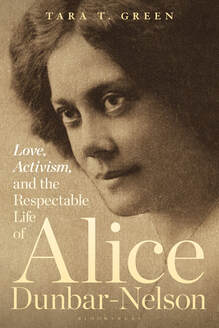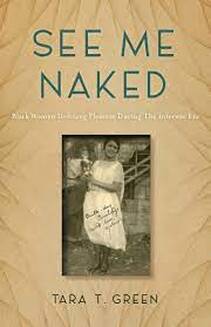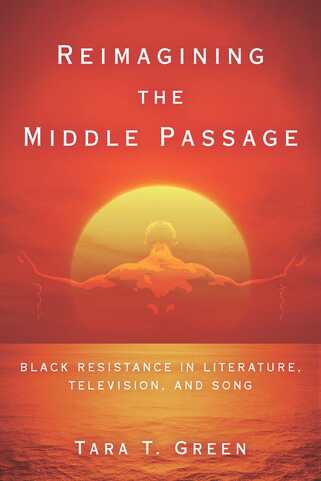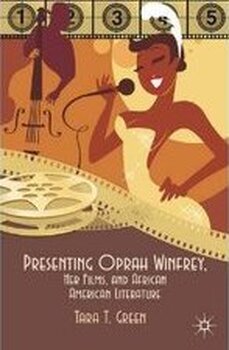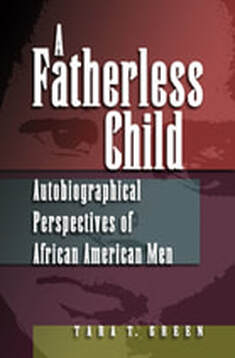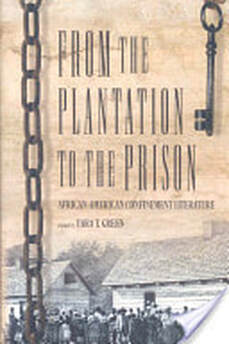|
I write about Black people—Black family relationships, Black leadership/activism, Black performance, Black Southern life—from the perspective of Black feminism. I am the author of 4 books and the editor of 2. My work is disciplinary literary analysis and interdisciplinary.
I believe that what I study and teach should be accessible to the public. Therefore, I also have experience writing editorials and publishing interviews. |
|
Love, Activism, and the Respectable Life of Alice Dunbar-Nelson
The first biography about her life and work. Published: Jan. 2022 Order: Bloomsbury Love, Activism, and the Respectable Life of Alice Dunbar-Nelson is about the love one Black woman had for her race, of men and women, and, finally, of herself. Born in New Orleans in 1875 to a mother who was a former slave and a father of questionable identity, Alice Dunbar-Nelson was a pioneering woman who actively addressed racial and gender inequalities as a writer, suffragette, educator, and activist. Tara T. Green builds on Black feminist, sexuality, historical and cultural studies to construct a biographical study that examines Dunbar-Nelson's life as a respectable activist-a woman who navigated complex challenges associated with resisting racism and sexism, and who defined her sexual identity and sexual agency within the confines of respectability politics. Topics: Black clubwomen's movement Black women, suffrage, and politics Respectability politics African American marriage LGBTQ Domestic abuse Black Americans and WWI Black women and journalism |
Awards:
2023 Honor book for the Nonfiction category, Black Caucus American Library Awards
2023 Prose Award Biography Finalist, Association of American Publishers
Reviews:
“A fascinating biography of a fascinating woman.” - Booklist, starred review
“This definitive look at a remarkable figure delivers the goods.” - Publishers Weekly, starred review
2023 Honor book for the Nonfiction category, Black Caucus American Library Awards
2023 Prose Award Biography Finalist, Association of American Publishers
Reviews:
“A fascinating biography of a fascinating woman.” - Booklist, starred review
“This definitive look at a remarkable figure delivers the goods.” - Publishers Weekly, starred review
|
See Me Naked:
Black Women Defining Pleasure During the Interwar Era Published: Feb. 2022 Order: Rutgers University Press Pleasure refers to the freedom to pursue a desire deliberately sought in order to satisfy the self. Putting pleasure first is liberating. During their extraordinary lives, Lena Horne, Moms Mabley, Yolande DuBois, and Memphis Minnie enjoyed pleasure as they gave pleasure to both those in their lives and to the public at large. They were Black women who, despite their public profiles, whether through Black society or through the world of entertainment, discovered ways to enjoy pleasure. They left home, undertook careers they loved, and did what they wanted, despite perhaps not meeting the standards for respectability in the interwar era. See Me Naked looks at these women as representative of other Black women of the time, who were watched, criticized, and judged by their families, peers, and, in some cases, the government, yet still managed to enjoy themselves. Among the voyeurs of Black women was Langston Hughes, whose novel Not Without Laughter was clearly a work of fiction inspired by women he observed in public and knew personally, including Black clubwomen, blues performers, and his mother. How did these complicated women wrest loose from the voyeurs to define their own sense of themselves? At very young ages, they found and celebrated aspects of themselves. Using examples from these women’s lives, Green explores their challenges and achievements. Topics: Blues music Black women and comedy W.E.B. DuBois Pleasure and sexuality LGBTQ |
|
Reimagining the Middle Passage: Black Resistance in Literature, Television, and Song
To order: Ohio State University Press Reimagining the Middle Passage: Black Resistance in Literature, Television, and Song analyzes twentieth and recent twenty-first-century representations of the Middle Passage created by African-descended artists and writers. Examining how Black writers and performers of the South revised and reimagined the Middle Passage in their work, Green argues that they recognized it as a historical and geographical site of trauma as well as a symbol for a place of understanding and change. Their work represents the legacy African captives left for resisting "social death" (the idea that Black life does not matter), but it also highlights strong resistance to that social death (the reality that it does matter). Reimagining revisits Alex Haley's classic Roots and the television adaptations as precursors for work by Charles Johnson and Jewell Parker Rhodes as they nod to the connection between the Middle Passage and flooded Black communities explored in work by Richard Wright, Jesmyn Ward, Spike Lee's When the Levees Broke, HBO's Treme, and blues music. (2018). Topics: Middle Passage Flooding and Black communities Flood blues History of race and violence African American fiction |
Reviews:
American Library Association, Choice Review:
"Green's specific focus on the symbolism of water (from the Middle Passage itself to Hurricane Katrina) and the idea of forgiveness makes this book an original and significant addition to the study of the psychological and resistance effects of the forced migration to which slaves were subjected."
Summing Up: ★★★ Highly recommended. Upper-division undergraduates through faculty.- T L. Stowell, Adrian College
Read a recent review.
Featured Article: UNCG Research Magazine
American Library Association, Choice Review:
"Green's specific focus on the symbolism of water (from the Middle Passage itself to Hurricane Katrina) and the idea of forgiveness makes this book an original and significant addition to the study of the psychological and resistance effects of the forced migration to which slaves were subjected."
Summing Up: ★★★ Highly recommended. Upper-division undergraduates through faculty.- T L. Stowell, Adrian College
Read a recent review.
Featured Article: UNCG Research Magazine
|
Presenting Oprah Winfrey: Her Films and African American Literature
To order: Palgrave Macmillan Pop culture icon and media mogul Oprah Winfrey has produced or starred in ten films and telefilms. In this collection, the contributors use film, music, masculinity, black feminist, and cultural studies to examine Winfrey's role as an actress and, in some cases, producer of films that interpret works published by African American writers between 1937 and 1996. Their essays critically examine representations of African Americans and sexuality, blues, class, inter-racial and intra-racial prejudices, and their intersection with Winfrey's influence as interpreter and mediator of African American literature and culture to diverse audiences. (2013) |
Reviews:
"A provocative discussion of the delicate dance between co-opting and ownership, adaptation and translation. Tara T. Green has assembled a timely collection of essays that speaks to the complexities of Oprah Winfrey's role in shaping racial and cultural literacy—on and off the page." - Carol E. Henderson, chair, Department of Black American Studies, and professor of English, University of Delaware
"This book steps boldly away from the many traditional biographies of Oprah to examine her role as a literary and cultural interpreter, and it would be a valuable addition to any library's collection of critical works on African American literature. Summing Up: Recommended. All readers." - CHOICE
"A provocative discussion of the delicate dance between co-opting and ownership, adaptation and translation. Tara T. Green has assembled a timely collection of essays that speaks to the complexities of Oprah Winfrey's role in shaping racial and cultural literacy—on and off the page." - Carol E. Henderson, chair, Department of Black American Studies, and professor of English, University of Delaware
"This book steps boldly away from the many traditional biographies of Oprah to examine her role as a literary and cultural interpreter, and it would be a valuable addition to any library's collection of critical works on African American literature. Summing Up: Recommended. All readers." - CHOICE
|
A Fatherless Child: Autobiographical Perspectives of African American Men
To order: University of Missouri Press
Now available as an e-book |
Review:
Appealing to a variety of areas of study--African American cultural identity, history, sociology, political science, and literature--Green admittedly engages in a dialogue with Keith Clark, author of Black Manhood in James Baldwin, Ernest J. Gaines, and August Wilson (CH, Dec'02, 40-2015). Summing Up: Recommended. Lower-division undergraduates through faculty and professionals. -- T. L. Stowell, Adrian College Reviewed in 2009 Aug CHOICE.
Appealing to a variety of areas of study--African American cultural identity, history, sociology, political science, and literature--Green admittedly engages in a dialogue with Keith Clark, author of Black Manhood in James Baldwin, Ernest J. Gaines, and August Wilson (CH, Dec'02, 40-2015). Summing Up: Recommended. Lower-division undergraduates through faculty and professionals. -- T. L. Stowell, Adrian College Reviewed in 2009 Aug CHOICE.
|
From the Plantation to the Prison
To order: Mercer University Press This book is an examination of the various forms that imprisonment, as asocial, historical, and political experiences of African Americans, has taken. Confinement describes the status of individuals who are placed within boundaries, either seen or unseen but always felt. A word that suggests extensive implications, confinement describes the status of persons who are imprisoned and who are unjustly relegated to a social status that is hostile, rendering them powerless and subject to the rules of the authorities. Arguably, confinement appropriately describes the status of African Americans who have endured spaces of confinement, which include, but are not limited to plantations, Jim Crow societies, and prisons. At specific times, these spaces of confinement have been used to oppress African Americans socially, politically, and spiritually. Contributors examine the related experiences of Malcolm X, Bigger Thomas of Native Son, and Angela Davis. (2008) |
Selected Articles and Book Chapters
- “Black Biography From the Past to the Present.” A History of African American Autobiography. Cambridge University Press. Editor, Joycelyn Moody. 6,000 words. 2021
- Black Masculinity and Black Women’s Bodies: Representations of Black Bodies in Twelve Years a Slave.” Palimpsest: A Journal on Women, Gender, and the Black International. 2015.
- “Sexed-Up and Dumbed-Down: Black Southern Men in James McBride’s Miracle at St. Anna.” Obsidian III: Literature in the African Diaspora. 12.1 (2011): 34-46.
- “Not Just Paul’s Wife: Alice Dunbar’s Literature and Activism.” Langston Hughes Review, (Winter/Fall 2010/2011)
- “Voodoo Feminism through the Lens of Jewell Parker Rhodes’s Voodoo Dreams.” Women’s Studies Journal, 41.13, 282-302.
- “When the Women Tell Stories: Healing in Edwidge Danticat’s Breath, Eyes, Memory.” African American Fiction Since 1970: Critical New Essays. Editor, Dana A. Williams. Columbus: Ohio State UP: 2009. pp. 82-98.
- Reprint: African American Writing. Editor, A. Robert Lee. New York: Routledge: November 2012.
- “Meeting Richard Wright in the Mountains: Reflections on Teaching at Northern Arizona University.” Papers on Language and Literature. 44.4 (2008): 382-387.
- “Speaking of Voice and August Wilson’s Women.” August Wilson and Black Aesthetics. Eds. Dana Williams and Sandra Shannon. New York: Palgrave Macmillan, 2004. pp. 145-157.
- “Where Do We Go From Here? The Literature of African Peoples and African Studies.” African Studies for the 21st Century. Editor, Jacob U. Gordon. New York: Nova Science: 2004. pp. 71-82.
- “The Virgin Mary, Eve, and Mary Magdalene in Richard Wright’s Novels.” CLA Journal. (December 2002): 168-193.
- Reprinted: Richard Wright’s Native Son, edited by Harold Bloom. 2008.
- “Mother Dear: The Motivations of Tina McElroy Ansa’s Mudear.” The Griot: Official Journal for the Southern Conference on Afro-American Studies. (Spring 2002): 46-52.
Professional Articles on Higher Education
- "I Wish I Knew Then, What I Know Now: How to Build a Communal Pipeline." Beyond
- Retention: Cultivating Spaces of Equity, Justice, and Fairness for Women of Color in U.S. Higher Education. Eds., Sabrina Ross and Brenda Marina. Information Age Publishing. 2016.
- "Evaluating Evaluations: Answering the Unasked Question," Diverse: Issues in Higher Education." (December 29, 2005): 38.

